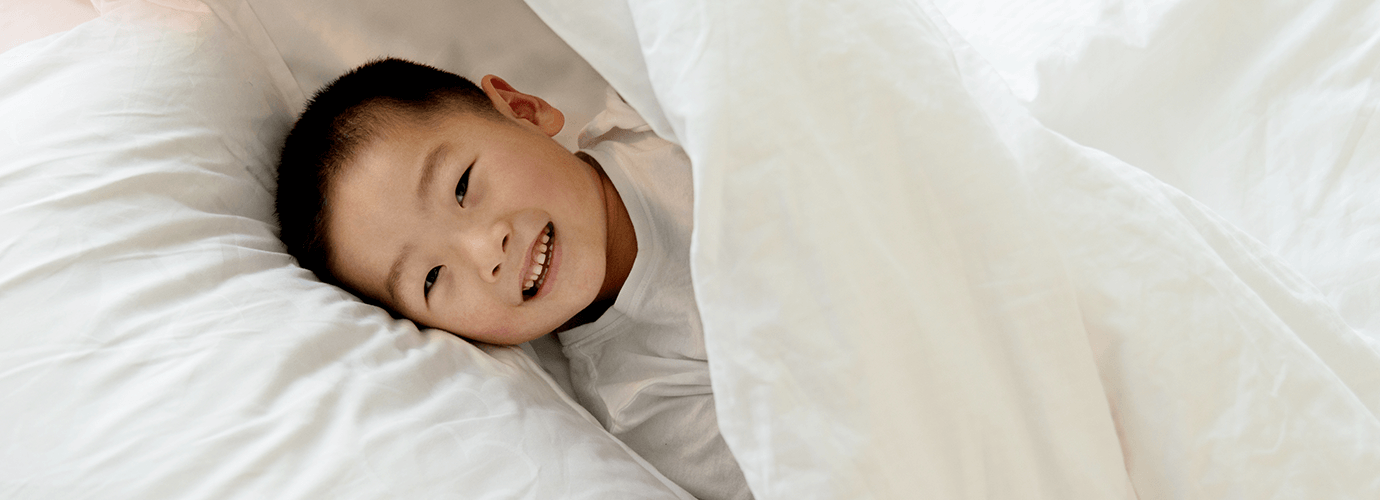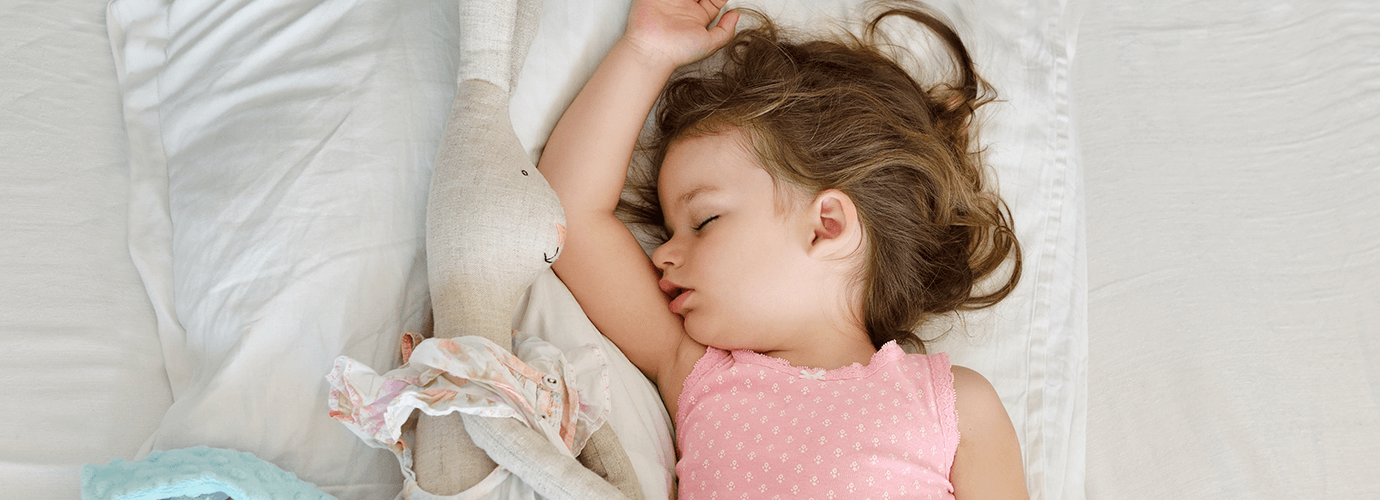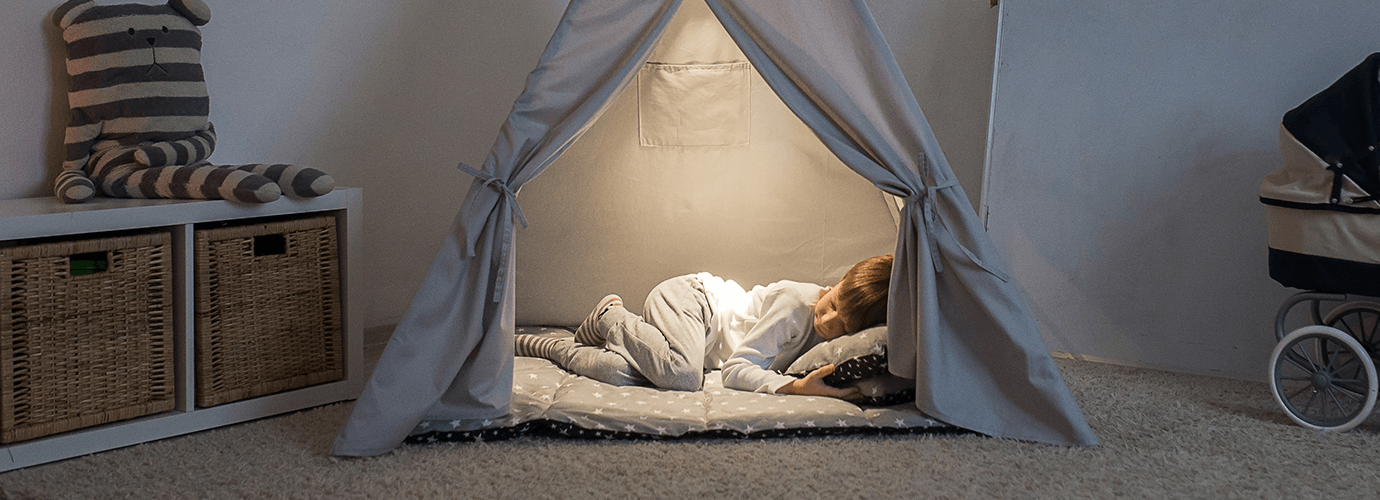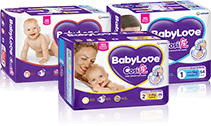Everything you need to know about bed-wetting
Did you know that bedwetting affects 20% of five-year-olds, 5% of ten-year-olds and 1% of 15-year-olds? There are two types of nocturnal bedwetting: primary and secondary. Primary nocturnal bedwetting is diagnosed in children who have been bedwetting since they were babies. Secondary nocturnal bedwetting occurs in children who begin bedwetting after more than six consecutive months of dry nights. Primary nocturnal bedwetting is more common, occurring in 80% of all nocturnal bedwetting cases.
Topics covered in this article/blog
How to handle bedwetting
Bedwetting strategies that don’t work
Bedwetting concerns – School camps and sleepovers
Key things to remember about bedwetting
Most children stop daytime wetting by the age of three and stop wetting at night by the time they’re five. Most pre-schoolers still wet their bed from time to time though. Sometimes, there can be medical causes, so it’s a good idea to have it checked by your doctor. A lot of children who wet the bed produce more urine at night than others, because of a low level of a hormone that controls how much urine is made while they’re sleeping. Others have bladders that simply can’t hold a lot. Try not to punish your child when they wet the bed, they are not conscious when it happens and have no control of the problem. Instead, remain calm and supportive and you’ll help your child from feeling anxious or ashamed about wetting the bed.
How to handle bed wetting
Bedwetting is completely normal, and luckily, we’ve got a number of simple tips you can use to help your child with any bedwetting issues!
Tip one: Keep your child hydrated
Encourage your child to stay hydrated during the day, rather than at night. If your child is weaning or has started day care or pre-school, they might be drinking less than they used to. A good fluid intake will help support normal bladder function and development.
Tip two: Avoid caffeine
Try not to give your child food or drinks that contain caffeine, like chocolate or soft drinks. Caffeine can act as a diuretic, meaning it encourages the body to produce more urine.
Tip three: Eat the right foods
Ensure your child eats plenty of fruits and vegetables so they receive a good amount of dietary fibre. This can help with constipation, which is also a common cause of wet beds (Being constipated can cause the intestine to push on the bladder, which reduces its capacity to hold urine).

Bedwetting strategies you should avoid
Some parents think that weaning their kids off nappies or overnight pants as quickly as possible is necessary to finish the toilet-training process. However, this isn’t actually true. Using nappies at night won’t delay your child’s progress, in fact, they help ease the stress of constant changing and laundry. Make your life as easy as possible while you and your child are dealing with this problem.
Avoid Waking your child
Avoid waking your child in the middle of the night and talking her to the toilet. Yes, this may give you a dry bed in the morning, but you’ll probably still be doing it in a year’s time. Plus,
by emptying the bladder before it is full, you may be stopping your child’s bladder from learning to stretch enough to hold a full night’s urine.
Don’t Punish Your Child
Try not to punish your child when they wet the bed. She’s not conscious when it happens, so she has no control over the problem. By remaining calm and supportive, you’ll help keep
your child from feeling any anxiety about wetting the bed.

Bedwetting concerns – School camps and sleepovers
By Raising Children Network
Children should be encouraged not to miss out on fun times because of the fear of bedwetting. Often, children worry about wetting the bed at school camps or at sleepovers and might try to avoid going. If your child is very anxious about camp or sleepovers, there’s a hormone medication (which is sprayed into the nose) that can decrease the amount of urine produced at night. See your doctor a couple of weeks before the camp or sleepover to see whether this might help your child.
Remember that teachers are used to dealing with these situations without embarrassing the child. Have a private discussion with your child’s teacher about how the bedwetting can be managed, then talk with your child about what to do if it happens at camp. If your child is going on a sleepover in someone else’s home, discuss with the parent how to best manage the bedwetting. Let your child know they can talk to the adult of the house privately if they have an accident.
Overnight pants https://babylovenappies.co.nz/our-products/sleepynights-pants/ could really help your child in these situations, especially because there are also ‘nappies’ for older/bigger children.

Sources:
Sourced from the Raising Children Network’s comprehensive and quality-assured Australian parenting website http://raisingchildren.net.au




